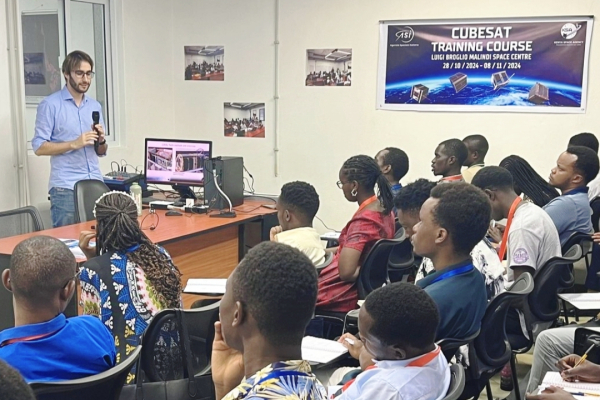Kenya aims to accelerate the development of its space industry, viewing it as a key driver of socioeconomic progress. The country’s first Earth observation satellite, designed and built by local engineers, was launched in April 2023.
The Kenya Space Agency (KSA) announced on Monday, October 28, the launch of a training program focused on nanosatellite (CubeSat) development, in partnership with the Italian Space Agency (ASI). The program, which runs through November 8, is led by ASI industry experts and professors from the University of Rome “La Sapienza.”
Thirty participants, including students and KSA technical staff, are benefiting from the hands-on training, which aims to bridge the technology gap and enhance Kenya’s capabilities in space science and technology.
“This Cubesat Training Course is aimed to benefit the participants by equipping them with essential skills and experience in satellite development. The course is intended to bridge the technology gap and help Kenya develop its indigenous technical capabilities to drive future advancements in space science and technology,” the KSA stated.
The initiative builds on an online training program held from July 22 to August 16, 2024, which provided theoretical knowledge on nanosatellite development. That program was organized by KSA and the U.S.-based company Teaching Science & Technology, Inc. (TSTI).
The training aligns with KSA’s strategic plan for 2023-2027, which aims to foster Kenya’s emerging space economy and contribute to national socioeconomic development.
By empowering Kenya to build its own nanosatellites, the program is expected to further the country’s space ambitions. In April 2023, Kenya launched its first operational Earth observation satellite, Taifa-1, which was designed and developed by a team of Kenyan researchers. Taifa-1 supports various sectors, including agriculture, food security, natural resource and disaster management, and environmental monitoring.
Isaac K. Kassouwi



















